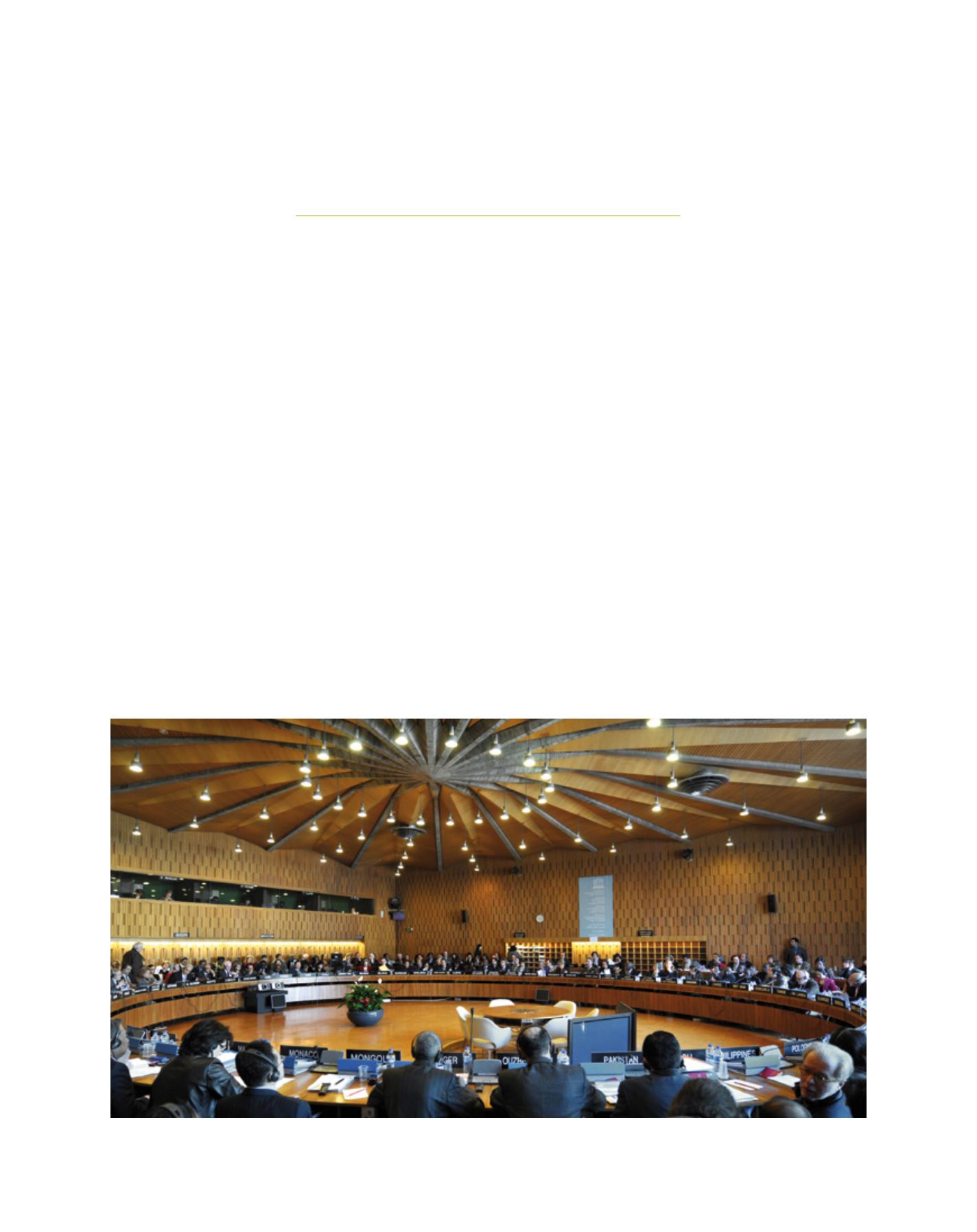

[
] 175
Looking beyond the Decade:
UNESCO’s contribution
Aline Bory-Adams, Chief of Section for DESD Coordination and Shivali Lawale, Section for DESD Coordination,
Division for the Coordination of United Nations Priorities in Education, UNESCO
N
o problem can be solved by the same consciousness that
created it. We have to learn to see the world anew. These
words by Albert Einstein aptly sum up the role that
education for sustainable development (ESD) plays today, espe-
cially in this era of rapid change in which the social, economic,
environmental and cultural realms of global society are faced
with daunting challenges.
As an educational paradigm shift, ESD goes beyond the traditional
premise of education by providing populations, children and adults
alike, with the savoir-faire to tackle the complexities of tomorrow
today. Elements like critical thinking, problem solving, futures
thinking, systemic thinking and linking the global to the local form
the cornerstones of the ESD enterprise.
Given its wide scope and outreach, ESD is not just supportive
but also contributes to other education and international develop-
ment initiatives like Education for All (EFA) and the Millennium
Development Goals (MDGs). It addresses the issue of quality within
the EFA endeavour by promoting the idea of an expanded vision of
education. Since ESD addresses the social, economic,
environmental and cultural domains, it plays a catalytic
role in the achievement of the eight MDGs. Single-issue
or emerging educations like peace education, educa-
tion for HIV and AIDS, climate change education and
human-rights education, among others, are intrinsically
linked to ESD.
The growing importance and evolution of ESD can be
traced through the series of international conferences
that span the last two decades and in the culmination of
the UNESCO-led United Nations Decade of Education
for Sustainable Development (DESD) 2005-2014, thus
bringing it to the political centre stage. The DESD
aims to “articulate the overall social project and aim
of development”
1
by supporting the inclusion of ESD
in traditional forms of learning as well as encourag-
ing new forms of learning that can help populations
to respond to sustainable development challenges. To
bring this mandate to fruition, UNESCO has been given
UNESCO: Leading and implementing the UN Decade of Education for Sustainable Development
Image: © UNESCO/Patrick Lagès
















